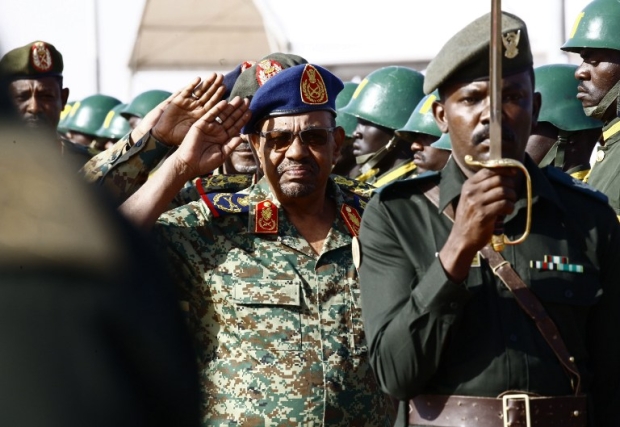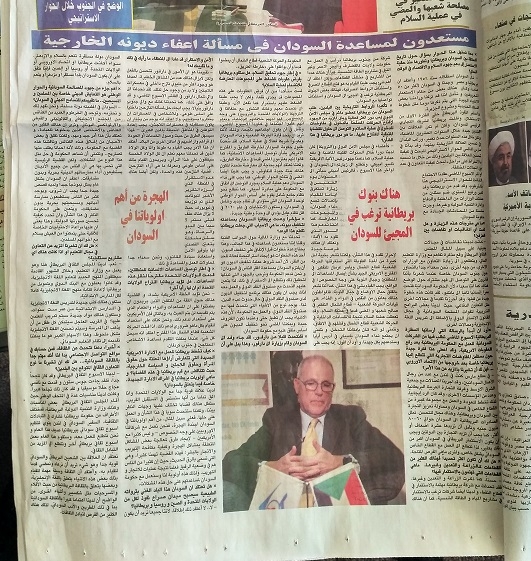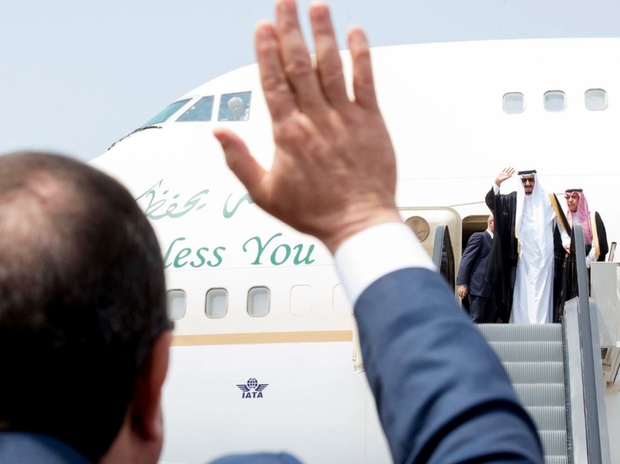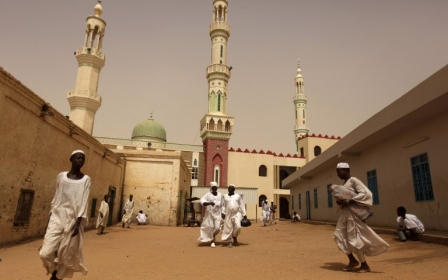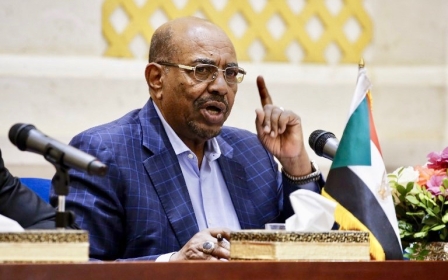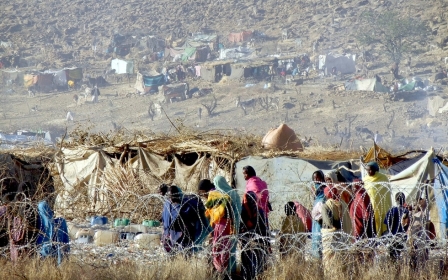What the Saudi air force was doing in Khartoum: Sudan's tilt to the Gulf
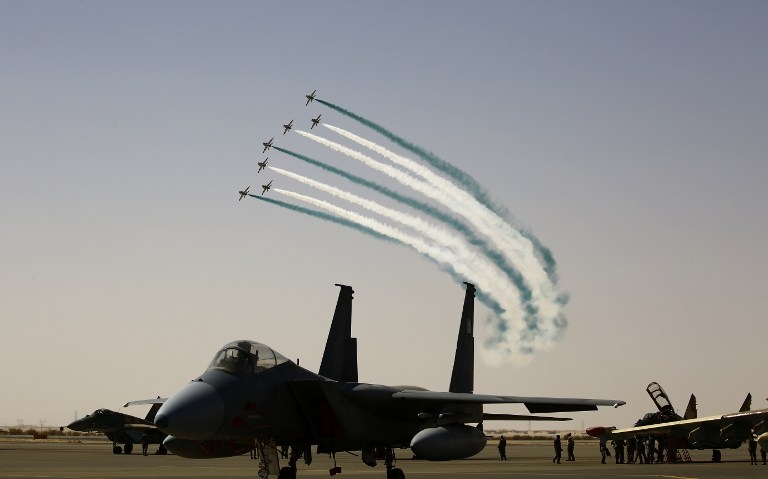
KHARTOUM - As I entered the lobby of Al-Salam Rotana Hotel in Khartoum, I found Saudi military personnel preparing to leave for their last day of the Blue Shield Air Forces’ exercise with their Sudanese counterparts.
The rare joint military exercise of Sudan and Saudi Arabia air forces made big headlines the next day in Sudanese newspapers, with quotes taken from President Omar al-Bashir's concluding statement in which he called the exercises a warning to all who wanted to inflict damage on either country’s security.
Who these “enemies” were, however, he did not elaborate because he didn’t need to.
But the relationship between the two ended in January 2016 after the Saudi embassy in Tehran was attacked by protesters following the execution of Nimr al-Nimr, a prominent Shia cleric, and 46 others, when Sudan cut its diplomatic ties with Iran.
It was the perfect excuse for which Khartoum had long been searching. Prior to this incident, Sudan had joined the Saudi-led coalition in Yemen in 2015 and was reportedly paid $2.2 billion for sending its troops to the frontline against Iran-allied Houthis rebels.
Beyond Saudi
Sudan’s Saudi tilt does not seem to stop in Riyadh. A series of events show the direction where Sudan wants to go.
In late March, Sudan’s head of the National Intelligence and Security Services, Mohamed Atta, met in Washington DC with CIA Director Mike Pompeo, FBI Director James Comey and several congressmen. The CIA’s Sudan operation is believed to be the largest one in the Middle East apparently to enhance cooperation on counter-terrorism efforts.
On one of his final days in office, President Barack Obama issued an order easing 20-year-old sanctions against Sudan. While many of the sanctions will remain unrevoked and Sudan will remain as a US-designated state sponsor of terrorism, the move paves the way for normalisation of relations between the two countries.
This growing normalisation with key Western powers seems to have support from Israel which sees Sudan’s departure from Iran’s orbit as an important step for Israeli security.
Domestic-international balance
This dramatic shift towards the West has mostly gone unprotested by Bashir’s Islamist allies in the region. Saudi Arabia and the UAE have invested heavily in Sudan, helping the country create more jobs, build infrastructure and resolving its longstanding conflicts in Darfur and South Sudan.
More than 25 years after the 1989 military coup that brought him to power, Bashir has failed to deliver on many of his promises and he has serious domestic problems. With extreme poverty, unemployment, untrained youth and restricted political life, Sudan lags behind even the Arab world. Bashir badly needs allies with deep pockets; the Gulf states are planning to invest a massive $15 billion in the country during 2017.
So the geopolitical shift – and financial support that comes with it - offers Bashir a domestic rescue plan.
But it’s not that simple: the way in which Bashir has distributed land to GCC investors, many for agricultural use, is gradually becoming a major source of discontent among Sudan’s rural population.
Further, much of the foreign direct investment coming into Sudan is for the agricultural, animal, food, and mining sectors, not for job-creating sectors like manufacturing or infrastructure. Unemployment has been on the rise since 2011 when an independent South Sudan was created and major oil resources went with it.
Tourism also remains neglected as the country lacks infrastructure, transportation and services.
The regional picture
Sudan’s regional role is being shaped by the civil war in Libya, the outcome of which is now being largely defined by Egypt. There has also been lack of trust between Chad and Sudan after Sudan accused Chad of supporting rebels in Darfur.
Bashir still has the support of Sudan’s conservative politicians and, therefore, couldn’t stick with Iran when much of the region was turning against it.
And with Egypt’s complete confusion over its regional policies which have, in turn, confused its relationship with its Gulf allies, the timing for Sudan couldn’t be better. Egypt’s Syria and Iran policies have repeatedly switched. In Libya, Egypt has thrown its full support to General Khalifa Haftar while other countries still recognise the GNA as the main representative of the Libyan people.
So while Egypt remains a reluctant and unreliable partner of Saudi Arabia, Sudan finds an apt opportunity to end its regional and international isolation and receive the necessary economic support in exchange.
Sudan’s participation in the Saudi-led operations in Yemen have made the country a reliable ally which is eligible to become part of a greater GCC economic and security community, on par with Jordan, Yemen and Morocco.
By tilting towards the Gulf and becoming the part of the greater GCC family, Sudan will have a political system prone to Dutch disease, making it over-dependent on rents and external sources which means more stability and power for Bashir’s three decades rule - but disappointment for many Sudanese who are growing increasingly frustrated by the country's unchanging conditions.
- Omair Anas is a Delhi-based commentator and analyst.
The views expressed in this article belong to the author and do not necessarily reflect the editorial policy of Middle East Eye.
Photo: Planes take part in flyover during a joint Sudan and Saudi Arabia air force drill at the Marwa air base, near Meroe some 350 kilometres north of Khartoum, on 9 April 2017 (AFP)
This article is available in French on Middle East Eye French edition.
Stay informed with MEE's newsletters
Sign up to get the latest alerts, insights and analysis, starting with Turkey Unpacked
Middle East Eye delivers independent and unrivalled coverage and analysis of the Middle East, North Africa and beyond. To learn more about republishing this content and the associated fees, please fill out this form. More about MEE can be found here.



